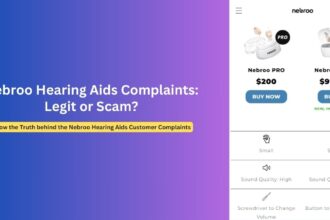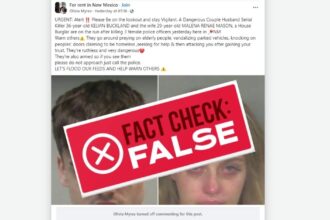Brian Johnson, better known as “The Liver King,” carved out a unique niche in the fitness world with his “ancestral lifestyle” philosophy centered around consuming raw organ meats and adhering to “primal” practices. For years, Johnson maintained that his impressively muscular physique at age 43 was achieved naturally through his nine ancestral tenets and consumption of raw meats—claims that helped him build a supplement empire reportedly worth over $100 million.
However, the façade came crashing down in late 2022 when leaked emails revealed Johnson was spending approximately $11,000 monthly on performance-enhancing drugs while publicly denying steroid use. This exposé not only shattered his credibility but also raised serious questions about the ethics of influencer marketing and the authenticity of wellness personalities in the digital age.
The Rise of an Ancestral Empire, Liver King
Johnson’s transformation into “The Liver King” began in 2021 when he launched his social media business. Before his meteoric rise to fame, he had pursued biochemistry and worked in the supplement and pharmaceutical industries—experience that would later prove valuable in building his brand.
His formula was simple yet effective: showcase an impossibly muscular physique, attribute it to an “ancestral lifestyle,” and market supplements to followers seeking similar results. Central to his persona were the “Nine Ancestral Tenets,” which included:
- Eating like our ancestors (primarily raw organ meats)
- Sleeping on the floor or outdoors
- Moving intensely through physical labor
- Exposing oneself to the elements (cold plunges, sunlight)
- Connecting with the earth (barefoot walking)
- Fighting and protecting (practicing combat skills)
- Bonding with tribe members
- Enduring discomfort to build resilience
- Seeking spiritual connection through nature
The character Johnson created was intentionally extreme—eating raw testicles, pulling heavy weights with his teeth, and taking ice baths—all while maintaining that this lifestyle, not performance-enhancing drugs, was responsible for his physique.
The Deception Unveiled
Suspicions about Johnson’s natural status existed long before his public downfall. His physical appearance at age 43—weighing approximately 200 pounds at 5’7″ with extremely low body fat and pronounced muscular development—raised eyebrows among fitness experts.
The turning point came in November 2022 when popular fitness YouTuber Derek from “More Plates More Dates” published a video titled “The Liver King Lie.” The video featured leaked emails from Johnson to his coach in June 2021, detailing an extensive performance-enhancing drug regimen that included:
- Omnitrope (pharmaceutical grade human growth hormone): 10 IUs daily, costing $5,000 monthly
- IGF-1 LR3 (a peptide that mimics insulin-like growth factor)
- CJC-1295 with Ipamorelin (growth hormone secretagogues)
- Ibutamoren MK-677 (a growth hormone stimulator)
- Testosterone Cypionate: 120mg weekly as a “cruise” dose (implying higher “blast” cycles)
- Deca-Durabolin (Nandrolone): 120mg weekly
- Winstrol: 50mg daily
The revelation directly contradicted Johnson’s repeated claims on podcasts and social media: “I don’t touch the stuff. I’ve never done the stuff. I’m not going to do the stuff.”
The $100 Million Supplement Empire
Johnson’s business model was built around two primary supplement companies—”Ancestral Supplements” and “Heart & Soil”—which sold desiccated organ capsules for approximately $65 per bottle. He claimed these companies generated over $100 million annually.
The value proposition was clear: consumers could supposedly achieve results similar to the Liver King by taking his supplements and following his ancestral lifestyle. What they weren’t told was that his physique was primarily the result of extensive performance-enhancing drug use, not dried liver capsules.
This marketing approach appears to have worked extraordinarily well. Johnson amassed millions of followers across social media platforms:
| Platform | Follower Count (as of May 2025) |
|---|---|
| TikTok | 6.1 million |
| 2.9 million | |
| YouTube | 1+ million |
The deception drew comparisons to other fitness industry scandals, but the scale of Johnson’s operation and the extremity of his claims set his case apart.
The Public Apology and Aftermath
After the leaked emails went public, Johnson initially remained silent. However, as pressure mounted, he released a six-minute apology video in December 2022. In the shirtless video (maintaining his brand aesthetic), Johnson admitted: “Yes, I’ve done steroids. And yes, I am on steroids, monitored and managed by a trained hormone clinician.”
The apology was widely criticized as disingenuous. Johnson attempted to frame his hormone use as “replacement therapy” rather than acknowledging the extensive performance-enhancing regimen revealed in the emails. He claimed his motivation had been to help “15-year-old boys” at risk of suicide—an explanation many found unconvincing given the financial empire he had built on his deception.
The fallout was significant:
- A group of consumers filed a $25 million lawsuit against Johnson for fraud and misrepresentation (later dropped)
- Many former supporters publicly disavowed him
- His credibility as a health authority was permanently damaged
- The controversy sparked broader discussions about authenticity in the fitness industry
The Netflix Documentary
In May 2025, Netflix released “Untold: The Liver King,” documenting Johnson’s rise and fall. The film, directed by Joe Pearlman, features interviews with Johnson, his family, and business associates.
The documentary provides additional context about Johnson’s background, including:
- His childhood insecurities about being skinny
- His relationship with his father (a veterinarian) and brother
- His wife Barbara’s (known as “Liver Queen”) Polish background and dental surgery career
- Their sons Rad and Stryker, who were incorporated into the brand
- Johnson’s previous legal troubles, including allegations of counterfeiting money and defrauding GNC
However, some viewers criticized the documentary for potentially offering a sympathetic portrayal that downplayed the severity of Johnson’s deception. Reddit discussions following the documentary’s release highlighted concerns about the family dynamic, particularly regarding the children’s apparent reluctance to participate in the lifestyle.
Current Status and Legacy
Despite the scandal, Johnson continues to promote his ancestral lifestyle on social media, maintaining a significant following. The latest reports indicate he’s still active on various platforms, though with somewhat diminished influence.
The Liver King controversy has become a cautionary tale about:
- The potential for deception in influencer marketing
- The responsibility of social media personalities to be transparent about their methods
- The role of platforms in monitoring health and fitness claims
- The vulnerability of consumers seeking quick transformations
Johnson’s saga also raises important questions about the ethics of involving children in controversial lifestyle brands and the long-term psychological impact of living under such intense public scrutiny.
Frequently Asked Questions (FAQs)
1. Did the Liver King really scam his followers?
Yes, by most objective measures, Johnson’s actions constitute a scam. He repeatedly and explicitly denied using performance-enhancing drugs while building a $100 million supplement business based on the claim that his physique was achieved naturally through his ancestral lifestyle and supplements. The leaked emails proved these claims were false, revealing he was spending approximately $11,000 monthly on steroids and growth hormones.
2. Are the Liver King’s supplements completely worthless?
Not necessarily. Desiccated organ supplements may provide certain nutritional benefits, as organs are nutrient-dense. However, they cannot produce the dramatic physical results Johnson displayed, which were primarily achieved through performance-enhancing drugs. The supplements were misrepresented in terms of their potential effects when marketed as part of his “natural” transformation story.
3. Was the $25 million lawsuit against Liver King successful?
No, the lawsuit was eventually dropped. It had been filed by consumers who claimed they were defrauded after purchasing his supplements based on his false claims of being natural. The specific reasons for the dismissal haven’t been widely reported.
4. Does the Liver King still maintain his ancestral lifestyle?
Johnson continues to promote aspects of his ancestral lifestyle on social media, though with less emphasis on being “natural.” The Netflix documentary and various social media posts suggest he has adjusted some of his messaging while maintaining the core elements of his brand. He last uploaded to YouTube in November 2024 but remains active on other platforms.
5. What impact has the Liver King controversy had on the fitness industry?
The scandal has prompted increased scrutiny of fitness influencers’ claims, particularly regarding natural status. Many industry observers have called for greater transparency, better regulation of supplement marketing, and more accountability from platforms that host content making health and fitness claims. The controversy has become a reference point in discussions about influencer authenticity and responsibility.
Conclusion: Beyond the Deception
The Liver King saga represents more than just another fitness industry scandal—it highlights the complex intersection of social media, marketing, identity, and consumer psychology in the digital age.
Johnson’s ability to build a $100 million empire based largely on a fabricated persona speaks to both the power of compelling storytelling and the potential for exploitation in an environment where claims often go unverified. His continued influence despite the revelations suggests that personality and entertainment value sometimes outweigh credibility in the influencer economy.
For consumers, the Liver King controversy serves as a reminder to approach extraordinary claims with healthy skepticism, particularly when they’re tied to product sales. For the fitness industry, it underscores the need for greater transparency about enhancement and more realistic portrayals of achievable results.
As fitness and wellness content continues to proliferate online, the ability to distinguish authentic information from marketing mythology becomes increasingly important. Perhaps the most valuable lesson from the Liver King deception is that when claims seem too good to be true—whether about ancestral living, miracle supplements, or natural physiques—they very often are.






































